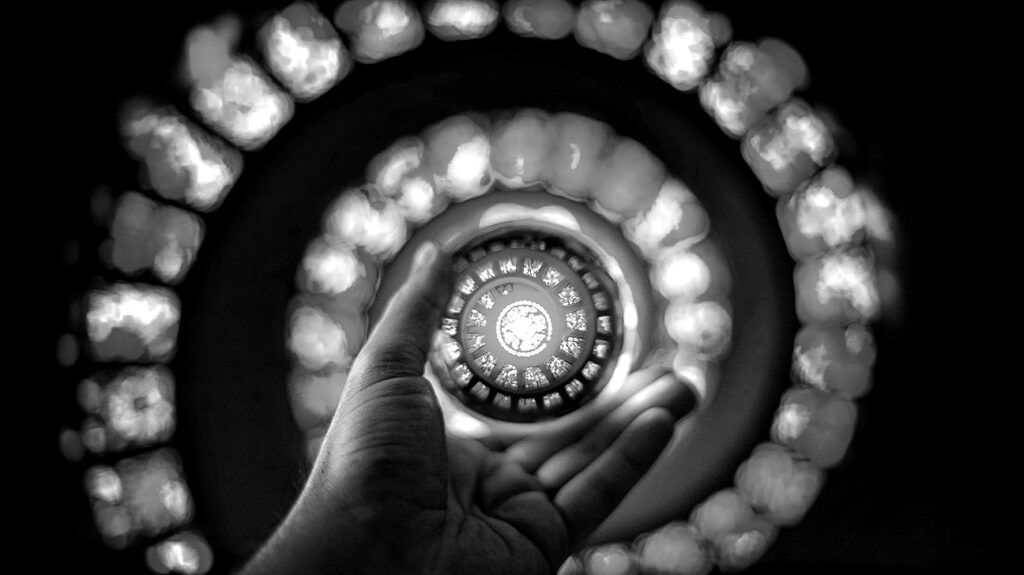The medical and scientific communities have not thoroughly studied the link between religion and schizophrenia. Personal religious or spiritual beliefs may positively or negatively affect the symptoms relating to schizophrenia.
Religion and spirituality often play an important role in people’s lives. It can help provide guidance, reassurance, and a sense of belonging. It can also help influence decisions in daily life.
Experts do not fully understand how religion and schizophrenia relate or interact with each other. Many scientific studies date back several years or include only small sample sizes.
This article explores what experts know about schizophrenia and religion and how religious or spiritual beliefs may affect symptoms or treatment.

Some evidence suggests that people living with schizophrenia may identify with a religion or hold strong religious beliefs.
In a
About two-thirds of the people scored high marks in a religiosity assessment, indicating strong religious beliefs or feelings. The researchers suggest that those living with schizophrenia and strong religious connections may find comfort in religious beliefs and experience a higher quality of life.
Another, earlier
Conversely, according to 2019 research, strong religious beliefs may increase the risk of religious delusions. Religious delusions may be more difficult to treat due to the strong conviction in the belief of the delusion.
Some evidence suggests that religious delusions are common in people living with schizophrenia. Estimates of these delusions in those who experience delusions range from one-fifth to two-thirds.
Religious delusions
Religious delusions are a unique type of delusion and not specific to any type of psychosis. However, they may share some features with other delusion types, such as delusions of guilt or delusions of grandeur.
Religious delusions are a preoccupation with religious subjects that are not within the expected beliefs of an individual’s culture, education, background, and known religious experiences.
The underlying cause of religious delusions in schizophrenia is unclear. It may involve several aspects including:
- strength of personal religious beliefs
- social and cultural expectations and pressures
- genetic factors
In any case, understanding the role of religion, religious beliefs, and spirituality may play an important role in treating those with religious delusions from schizophrenia.
Religion likely brings comfort to people with schizophrenia in a similar way to other individuals. A person may find comfort in spirituality, religious rituals or customs, or connecting with those with similar beliefs.
Some
- social integration
- treatment commitment
- successful treatment
- general coping with the illness
- suicide attempts
Suicide prevention
If you know someone at immediate risk of self-harm, suicide, or hurting another person:
- Ask the tough question: “Are you considering suicide?”
- Listen to the person without judgment.
- Call 911 or the local emergency number, or text TALK to 741741 to communicate with a trained crisis counselor.
- Stay with the person until professional help arrives.
- Try to remove any weapons, medications, or other potentially harmful objects.
If you or someone you know is having thoughts of suicide, a prevention hotline can help. The 988 Suicide and Crisis Lifeline is available 24 hours a day at 988. During a crisis, people who are hard of hearing can use their preferred relay service or dial 711 then 988.
It may also lead to improved quality of life, reduced substance use, and overall better success rates and outlook.
Support found in religious communities and groups may also influence success in treatment. They can help provide motivation and support throughout treatment and help a person avoid relapses.
Religious delusions can present a challenge to treatment. Those who experience them may have a harder time accepting that the delusion is not real.
Other
- feeling like spirits or religious leaders seek to control their actions
- a higher reliance on the rules and structure of their religion
- holding false beliefs, such as delusions of grandeur
- treatment avoidance in favor of religious-based treatment or no treatment at all
- feeling under the control or influence of spiritual entities to cause harm to themselves or others
Stronger religious beliefs can influence how difficult it may be to provide effective treatment and positive outcomes.
The following sections provide answers to frequently asked questions about religion and schizophrenia.
Are people with schizophrenia connected to God?
People with schizophrenia are no more connected to God than any other group or population. How connected someone feels to God is largely a personal belief, which is influenced by cultural and religious pressures.
Some people living with schizophrenia experience religious delusions. These people may believe they have a special connection to God or a higher purpose than others. This can contribute to problems with treatment, treatment avoidance, and overall negative outlook.
Does religion help with schizophrenia?
Religion and spirituality may help some people living with schizophrenia. It can provide some comfort, support for treatment, group support and help, and motivation to continue treatment.
However, it can also cause people to avoid treatment, resist treatment, or develop delusions according to their religious beliefs.
In either case, religion and spiritual beliefs
Mental health resources
Visit our dedicated hub for more research-backed information and resources on mental health and well-being.
Religion and schizophrenia have a complicated relationship.
For some, religion and spiritual beliefs can improve treatment outcomes and provide an overall better quality of life.
For others, they can become part of the delusions they experience. It may also make it more difficult to treat and lead to treatment avoidance.
Studies are still limited on religion and schizophrenia, so a lot of questions remain without answers. Healthcare professionals may be able to influence outcomes for people living with schizophrenia by gaining a better view of their religious beliefs.
